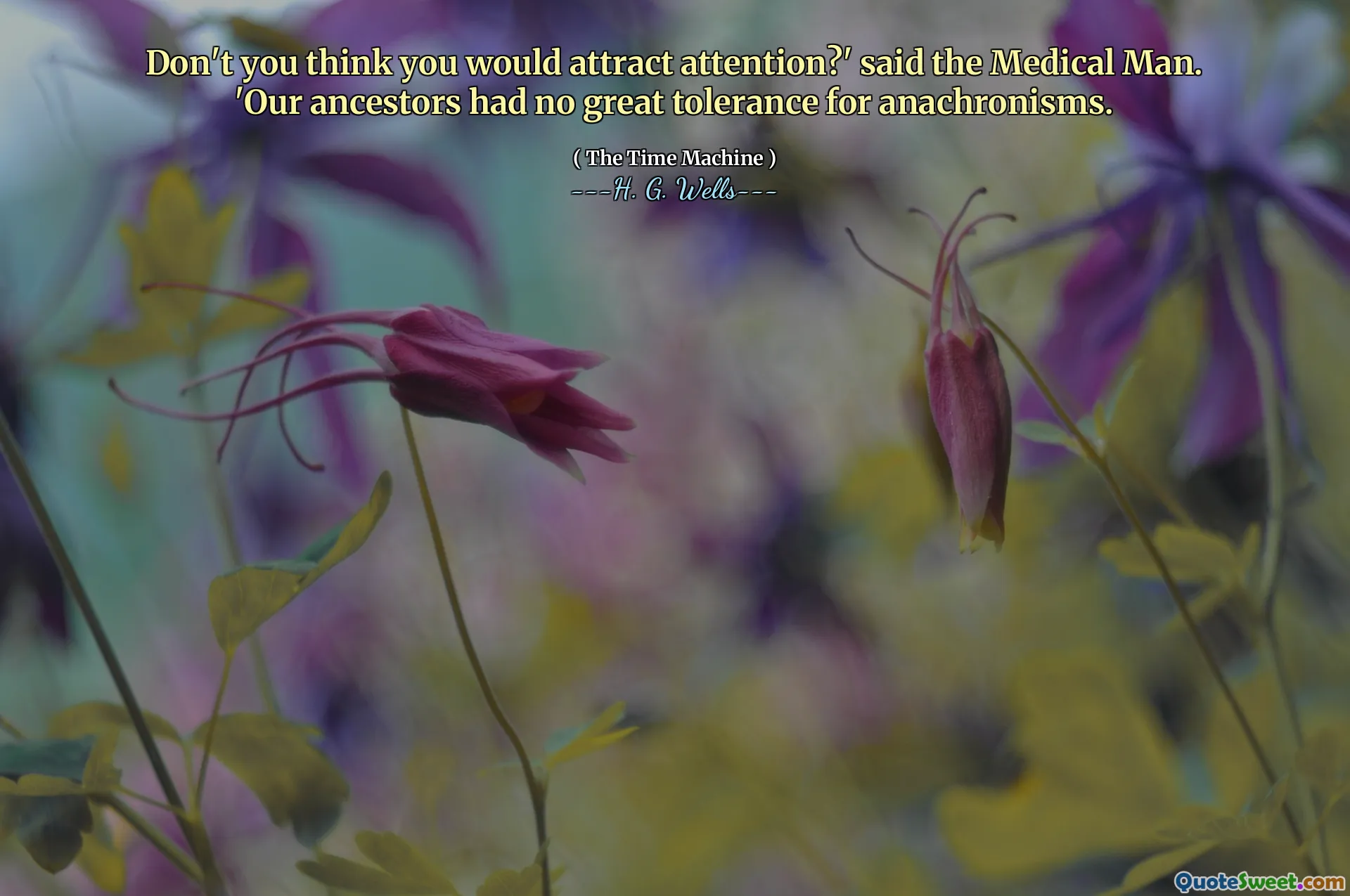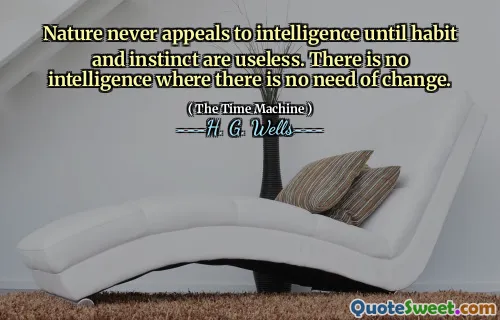
Don't you think you would attract attention?' said the Medical Man. 'Our ancestors had no great tolerance for anachronisms.
In H.G. Wells' "The Time Machine," a discussion unfolds about the consequences of time travel, particularly in relation to societal norms and expectations of different eras. The Medical Man raises a concern about how a time traveler would stand out in a historical context, suggesting that our ancestors might not easily accept someone who appears out of place. This highlights the intricate relationship between time and societal acceptance.
This quote suggests that the concept of anachronism—a violation of the timeline—could lead to significant consequences in interactions across different periods. It emphasizes the rigid nature of cultural and temporal boundaries, questioning how individuals from one time would be perceived by those from another. The underlying theme revolves around the complexities of time travel and the challenges of fitting in across the ages.











